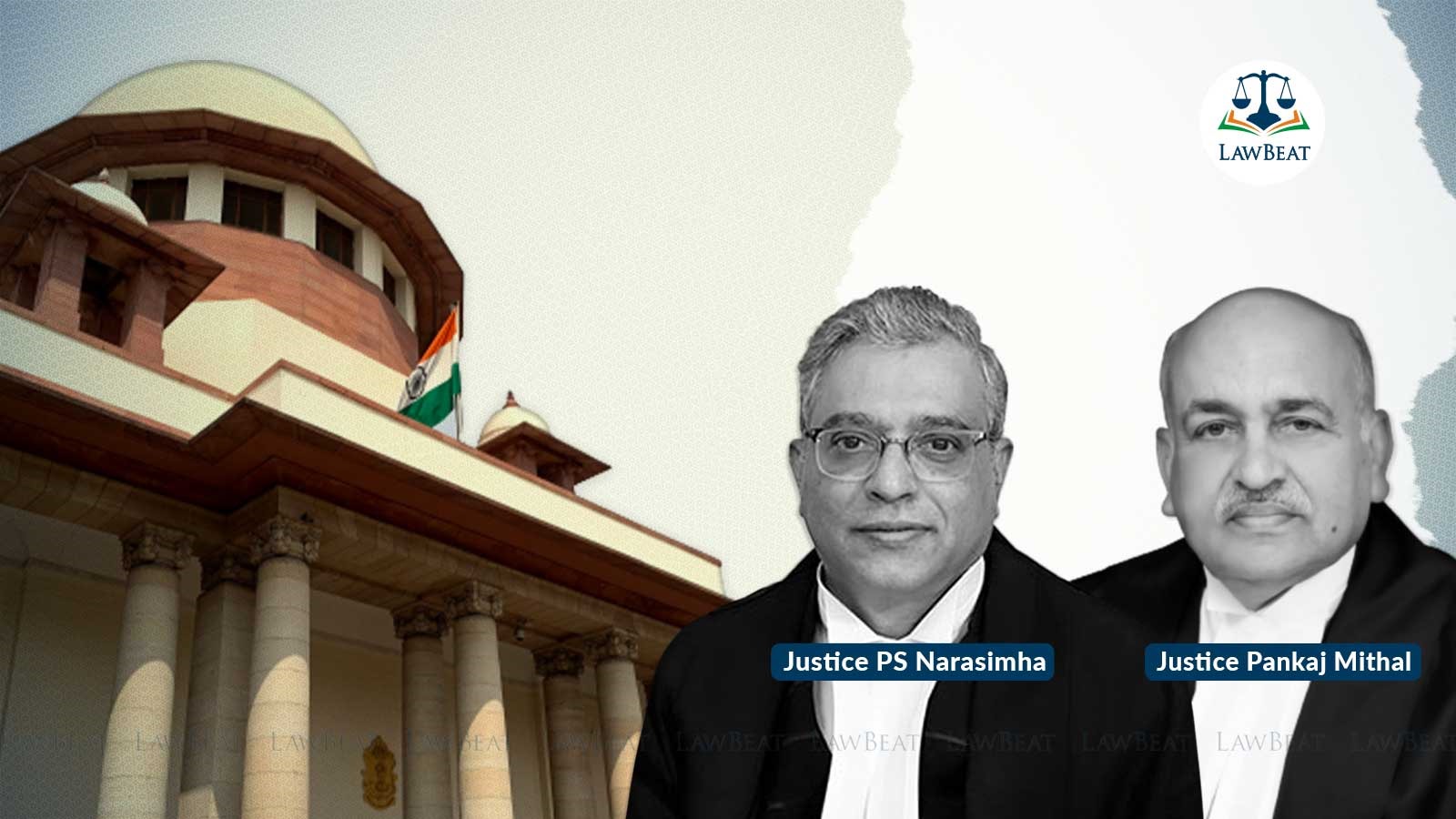‘Stepson instituted civil suit, DIL dowry harassment case’: SC quashes FIR filed to harass in-laws

Court opined that if the criminal proceedings were allowed to continue against the in-laws, it would be nothing short of an abuse of process of law and a travesty of justice
The Supreme Court of India, on September 25, 2024, quashed criminal proceedings against a woman, her husband, and their son in a dowry harassment case filed by her stepson's wife. The complainant had not named her own husband, who had separately filed a civil suit against his family members concerning property disputes.
A bench of Justices P S Narasimha and Pankaj Mithal held that the criminal proceedings were instituted with a mala fide intention, only to harass the family members.
"We have no hesitation in arriving at the conclusion that if the criminal proceedings are allowed to continue against the appellants, the same will be nothing short of abuse of process of law and travesty of justice," the bench said.
The order was passed in an appeal filed by one Kailashben Mahendrabhai Patel, her husband, son against the Bombay High Court's order declining to quash the proceedings in the FIR lodged on March 25, 2013 in Jalna, Maharashtra against them.
The top court allowed the appeal and set aside the high court’s order.
"The FIR in this case is rather unique, in as much as the complainant has chosen not to involve her husband in the criminal proceedings, particularly when all the allegations relate to demand of dowry. It appears that the complainant and her husband have distributed amongst themselves, the institution of civil and criminal proceedings against the appellants. While the husband institutes the civil suit, his wife, the complainant has chosen to initiate criminal proceedings. Interestingly, there is no reference of one proceeding in the other," the court noted.
Court pointed out that the stepson’s had filed a civil suit against his family members seeking for a declaration that the family property was ancestral in nature and that his father had no right to alienate or dispose of the property. He had also made the claim for the use the trademark of the family business.
"While the husband chose to institute the civil suit on 27.02.2013, the complainant filed the present criminal complaint on 01.03.2013 alleging demand of dowry and threat by appellants that she and her husband will be denied a share in the property," the bench highlighted.
The bench also pointed out one important event that gave a clear impression that the criminal proceedings were instituted with a mala fide intention, only to harass the family members, which was the filing of the Domestic Violence case, based on similar allegations.
"It is important to mention at this very stage that identical allegations in a DV case filed by the complainant were taken up at trial and the Judicial Magistrate, First Class had disbelieved the complainant’s version," the bench highlighted, adding as no appeal was filed, the DV case had attained the finality.
Further, examining the Bombay High Court's judgment refusing to quash the case, the bench said that beyond holding that there were specific allegations, there was no other analysis by the high court.
"The duty of the High Court, when its jurisdiction under Section 482 CrPC or Article 226 of the Constitution is invoked on the ground that the Complaint/FIR is manifestly frivolous, vexatious or instituted with ulterior motive for wreaking vengeance, to examine the allegations with care and caution is highlighted in a recent decision of this court in Mohammad Wajid and Another Vs State of UO and Others (2023)," the bench said.
The bench also pointed out the duty of the court, when FIR has predominating and overwhelming civil flavour, which was reflected in Jaswant Singh Vs State of Punjab (2021).
"The chargesheet is on record and we have examined it carefully, it simply reproduces all the wordings of the complaint. There is nothing new even after investigation, the allegations made in the FIR/complaint are exactly the allegations in the charge sheet. Even otherwise, the position of law is well entrenched. There is no prohibition against quashing of the criminal proceedings even after the charge sheet has been filed. In Anand Kumar Mohatta Vs State (NCT of Delhi) (2019)," the bench further noted.
Accordingly, court held that none of the ingredients of Sections 498A, 323, 504, 506 read with Section 34 IPC were made out in the matter and quashed the FIR against the family members.
Case Title: Kailashben Mahendrabhai Patel & Ors Vs State of Maharashtra & Anr
